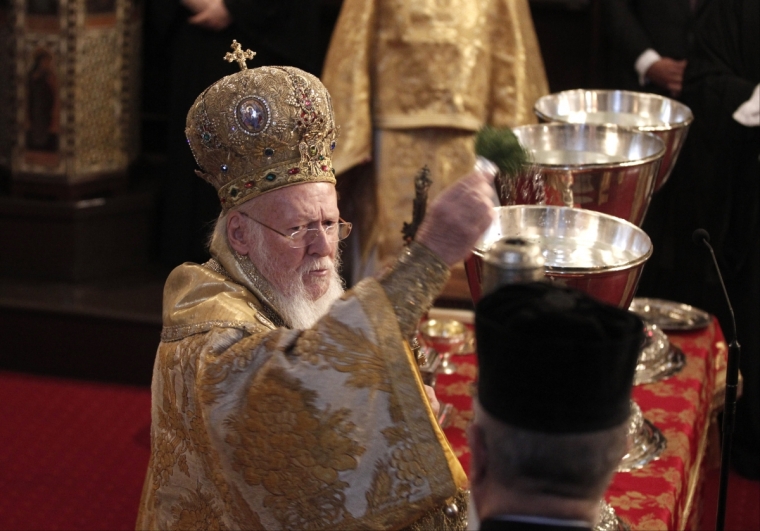Religious freedom commission asks Turkey to reopen seminary

WASHINGTON (Christian Examiner) – The U.S. Commission on International Religious Freedom (USCIRF) is calling on Turkey to allow the reopening of a Greek Orthodox seminary that was closed 44 years ago when the Turkish government took control of all institutions of higher education.
The Greek Orthodox School of Halki once trained ministers for the few eastern churches, but became another casualty of the long-standing feud between Greece and Turkey over the islands between them that dates back to the end of World War I. In 1971, Turkey hit back at Greek influence in the country, cutting away the Greek Orthodox seminary from the Christian minority in the country.
The failure to reopen Halki seminary is a stark example of the Turkish government's failure to uphold its international obligations to protect and promote the freedom of religion and belief.
The Greek population in Instanbul, Turkey, formerly Constantinople, was once near 100,000. Now, it is closer to 3,000. That many fewer Greeks means that many fewer Greek Orthodox Christians. According to Robert P. George, USCIRF chairman, the minority religious faith is in real danger of dying out completely in Turkey.
"Without the seminary, the Greek Orthodox community cannot educate in Turkey the next generation of clergy to lead their congregants in worship, observance, and practice," George said. "The failure to reopen Halki seminary is a stark example of the Turkish government's failure to uphold its international obligations to protect and promote the freedom of religion and belief."
The call to reopen the seminary will likely fall on deaf ears as Turkey's government, though still officially considered "secular," turns toward the Islamist interpretations of President Recep Tayyip Erdogan. Some have charged that Erdogan is secretly backing the Islamic State, perhaps as a means to unbalance northern Iraq, the home of the Kurds. The Kurds are also a longstanding enemy of the Turks.
If anything, Turkey offers a confusing picture of relations between Muslims and Christians, mostly because the secular government tamps down most all religious parties that grow too strong. The country's constitution, based on the French secular model, was adopted in 1982 and gave the government power over religious communities in the country. As the USCIRF reports, that makes the government supreme.
"Religious communities – neither the Sunni Muslim majority nor minority communities have full legal status, and all communities are subject to state control," the USCIRF said in a statement. "Furthermore, under Turkish secularism, religious communities have limited rights to own and maintain places of worship or other properties, train and appoint religious clergy, and offer religious instruction."
Still, in recent years the USCIRF says Turkey has enacted some reforms, such as returning the property of minority religious groups, lifting a ban on Islamic headscarves in public and revising some religion textbooks in public schools. Other rights, such as assembling for worship in some places, freedom of the press and freedom of speech and artistic impression, have retreated as the government has shifted toward Islamism.
Turkey has opened its doors to those fleeing sectarian violence in Iraq and Syria. George praised the country for that, but said it has some distance to go.
"President Erdogan, Prime Minister Davutoglu, and the newly elected Parliament should demonstrate that same leadership at home by prioritizing freedom of religion or belief and all other internationally protected human rights," George said. "Unconditionally reopening Halki seminary without delay would be one step in the right direction."
The USCIRF classified Turkey as a "Tier 2 Country" in its 2015 report on international religious freedom, which means there are troubling restrictions on the rights of religious groups and people of faith.
That ranking, however, may not be accurate. According to a report from the Gatestone Institute, a Washington, D.C.-based think tank chaired by former U.S. Ambassador to the United Nations John Bolton, Turkey has almost succeeded in systematically dismantling Christianity in the country.